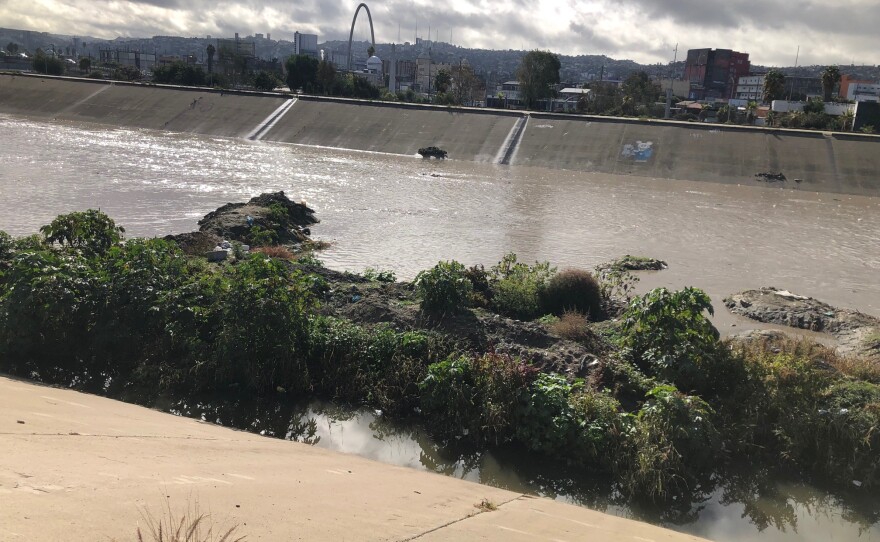Imperial Beach officials hope there is some relief soon from the onslaught of sewage-tainted water closing their beaches.
Imperial Beach Mayor Paloma Aguirre says two federal funding measures could go a long way toward keeping dirty water out of the ocean.
“It’s going to mean a significant number of beach closure days that are being reduced,” Aguirre said.
Congress recently approved more money for the Border Water Infrastructure Program. It now has a balance sheet of $100 million to help pay for improvements on both sides of the U.S.-Mexico border.
That is quite a change from just a few years ago.
“The past administration actually zeroed out this program,” Aguirre said. “And it’s something that many stakeholders, including myself, have been advocating for many years.”
The entire San Diego congressional delegation backed adding funding to the federal budget, including the region’s only Republican, Rep. Darrell Issa (CA-48).
“He's in a better position to talk to other members of the Republican conference, particularly now that they’re in the majority, than any of us Democrats,” said Scott Peters, the U.S. Representative from California’s 50th Congressional District. “We love having Darrell on board. We don’t agree on everything, obviously, but we do a pretty good job of talking to each other on local issues.”
That funding comes with another legislative action.
Language in the massive federal appropriations bill signed in late December also cleared the way for the Environmental Protection Agency to transfer $300 million to the International Boundary and Water Commission (IBWC).
A Trump-era trade deal set aside the money for the cross-border pollution problem, but the funds were awarded to the EPA. That agency can plan for solutions, but cannot build the infrastructure. The IBWC can.
"We shouldn’t have these closures. Last year we had a record number of beach closures both during wet weather and dry weather months."Paloma Aguirre, Imperial Beach Mayor
That transfer was stalled for two years because of objections by Senator Shelley Capito of West Virginia.
“Fortunately, at the year-end, when a lot of things come together, people are actually asking each other for a lot of help, the Senate issues were resolved,” Peters said.
That could help clear the way for federal officials to begin construction on a major expansion of the treatment plant just north of the border.
EPA officials hope their $630 million blueprint to contain and treat the sewage tainted water will help eliminate up to 95% of the flows that currently cross the border.

That is a welcome outcome in Imperial Beach, which endured an unprecedented number of beach closures in 2022. And a lot of the pollution happened in the summer, when conditions were pretty dry.
“That’s when those beach closures really kill us because we shouldn’t have these closures,” Aguirre said. “Last year we had a record number of beach closures both during wet weather and dry weather months.”
The massive EPA plan is not yet fully funded, but federal officials say there is enough money in place to begin making improvements.
Those include,
- Expanding the existing South Bay International Wastewater Treatment Plant (ITP) owned and operated by the U.S. International Boundary and Water Commission.
- Diverting and treating Tijuana River water at a new facility adjacent to the existing ITP.
- Conveying canyon flows to the expanded ITP.
- Repairing portions of the collection system in Mexico to prevent sewage leaks.
- Beneficially reusing treated wastewater instead of discharging it into the Tijuana River.
- Installing a river trash boom.
- Constructing a new San Antonio de los Buenos Treatment Plant in Tijuana.
Mexico has also pledged $144 million to improve pumps, pipes and sewage treatment facilities in Tijuana.
Mexican officials say they are ready to share responsibility and improve the quality of life on both sides of the border.
San Diego officials call that commitment important.








